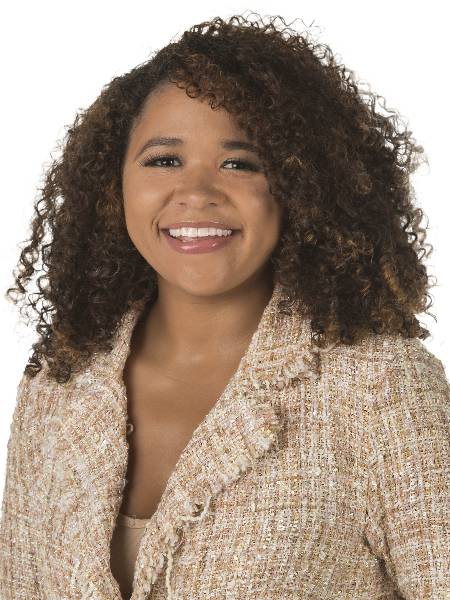Alum Success Story: McKenzie Green

Name: McKenzie Green
Degrees: B.S. in Psychology with a double major in African American Studies
Current role: Assistant Professor of Social Work at VCU and iCubed Scholar
I would say that for anyone who is thinking about either majoring solely in African American Studies or adding African American Studies as a second major, it’s a lot more feasible than you might think.
Why did you decide to pursue a BA in African American Studies?
When I got to VCU in the fall of 2013, I was a first-generation college student, so I was kind of unsure about what to study, but I chose to major in Psychology because I knew I wanted to help people in some way, shape, or form. I was especially interested in helping people who looked like me and came from communities like myself. So my academic adviser was like, “Oh, Psychology. Go that route.” And then, in a weird turn of events, I met Dr. Nasim who was the chair of the African American Studies Department. He told me about the B.A. program and a new campaign that they had launched to promote double-majoring in African American Studies. He had a background in psychology and psychological research, so he told me all about how I could use the African American Studies content and expertise with psychological research to really answer critical questions and improve the lived experiences of Black individuals in the United States. It just felt like a great match for my pathway.
What year did you graduate from VCU?
2017. I graduated with a B.S. in Psychology with the addition of a double major in African American Studies.
What have you done since graduating? What are some of the accomplishments that you are most proud of?
I’m most proud of coming back to VCU as a faculty member. I attended graduate school immediately after finishing at VCU in 2017. I went to get my PhD in applied social and community psychology, which was really all about further advancing my understanding of systemic contributions to the Black experience, and how we can use principles of empowerment and critical action to promote the well-being of Black individuals. I did my graduate program in four years, finished that, and then I completed a postdoctoral fellowship with the National Science Foundation. All of that training and experience is what led me back here to VCU in this really cool iCubed joint position with the School of Social Work.
What is the most valuable thing you learned while studying African American Studies, and how have you used it in your career or post-bachelor education?
It’s hard to pinpoint, because there was so much value that came from my double major. I think one of the most important things for me was understanding theory and philosophy from a wider perspective. In my Psychology classes, for example, I was introduced to mainstream theories that were created and developed by white people for white people. Not to say that those weren’t valuable in some way, shape, or form for the field, but they weren’t always as applicable to Black individuals. What my double major in African American Studies did was introduce me to other theoretical frameworks and concepts, like intersectionality theory and this idea of racial essentialism, that I wouldn’t have been introduced to or have understood fully in just a Psychology major. All of those concepts now inform how I approach my work today.
Why should students consider African American studies as a major?
Coming from more of a psychological point where I situate my work, I feel like adding that lens is going to make you a more effective scholar or practitioner, again because of what it introduces you to and the concepts it introduces you to. Even if you don’t think your work is only going to serve Black individuals, in some way, shape, or form, you might. It also introduces you to concepts, so it’s not just about the Black experience. Of course, that’s a huge focus of it. But when you think about concepts like structural racism or essentialism, those are things that impact all experiences of all groups. So I feel like whether you are in Psychology, or Criminal Justice, or Business, that perspective and that insight is just going to enrich your education and ultimately, I feel it can lead you into spaces that you might not have found if you don’t have that content expertise.
I would say that for anyone who is thinking about either majoring solely in African American Studies or adding African American Studies as a second major, it’s a lot more feasible than you might think. You might think, ‘Oh, double major. That’s going to be so much more work.’ But it really wasn’t. You have to take a lot of credits anyway. So it’s more about being strategic about which of those credits you’re taking. I would encourage individuals not to feel like it’s not a feasible addition to another program of study, because it is.